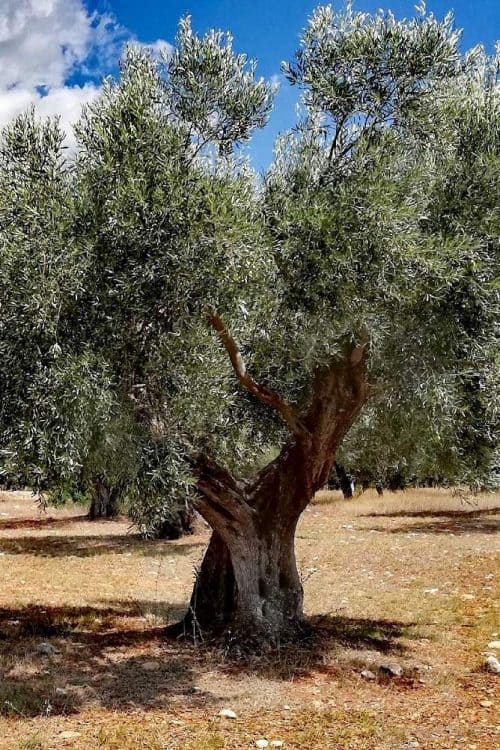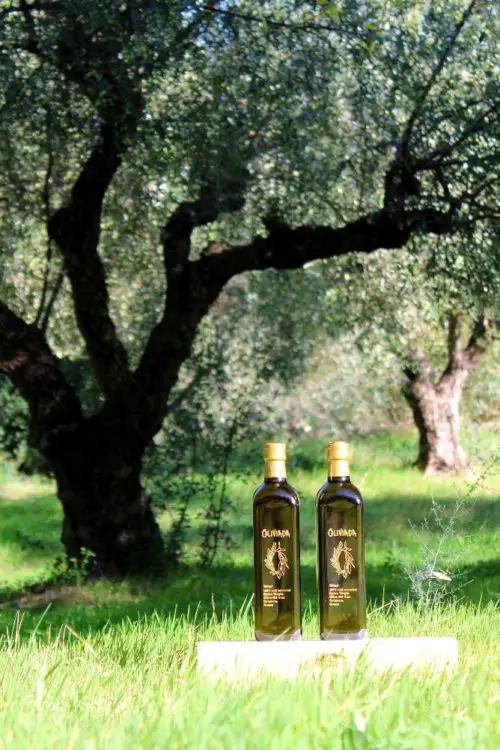This post may contain affiliate links which may generate a small commission from clicks that result in a purchase.
Olive oil is one of the most frequent ingredients in daily meals due to its known health benefits and its demand is growing rapidly across the globe. For instance, the olive oil market valued at $16 in 2020 is forecasted to reach $25 billion by 2027. As a consequence, over $5 billion worth of fake olive oil circulates in the market and around 69% of imported extra virgin olive oil in the USA is substandard.
So how to tell if olive oil real or fake at home? The most common way to check olive oil at home is to apply a sensory tasting technique by using 3 sensory organs. Use your nose to smell, your mouth to taste, and your eyes to analyze olive oil quality and characteristics.
In this article, I will explain the olive oil analyzing process and give you the most helpful instructions on how to check if olive oil real or fake at home. You will learn fundamental olive oil tasting operations in no time and be able to identify a good quality oil at home or at the counter.
1. Smell Analysis
Pour olive oil into a round glass
Firstly, take a round glass, let’s say a wine glass or any glass about 20 ml. Then pour a shot of your olive oil. Before smelling, it should be brought to the ideal temperature of F = 20C for tasting.
Swirl the glass in your hand as to warm the olive oil
Further, the most common method in heating the glass containing olive oil with hands. Cup the glass with one hand and cover the top with the other. We have to cover the top to trap the scent inside.
Delicately move olive oil around in a circular motion and warm it with your body heat for few minutes to make this process faster.

Breath in the olive oil
Afterward, uncover the glass and bring it near to your nose. Breathe in deeply through both nostrils trying to capture the different aromas. After a short time, repeat it a second time for confirmation.
Analysis outcome if olive oil real or fake
Analyze the scents of your sample:
- If your olive oil aroma presents pleasant scents such as freshness and smells like fruit, grass, or vegetables, it is more expected that your oil is real and truly an extra virgin.
- If you’re not getting much of a fresh scent, it’s likely not a pure extra virgin olive oil.
- If your olive oil smells musty, rancid, or is odorless, these sensations present the defects. And your olive oil is fake or not extra-virgin oil.
For example, generic pleasant scents from truly premium olive oil are grass, olive, tomato, banana, arugula, spinach, apple, citrus, or almond.

2. Taste Analysis
After you complete the initial smell analysis, the next critical step is to confirm olive oil quality with taste analysis.
Slurp the sip of olive oil to taste
Give the glass a twist and take a sip of the oil in your mouth but don’t swallow just yet. With clenched teeth and open lips, inhale air to oxygenate olive oil and swirl it around your mouth for some time. Because in this way olive oil can come into a contact with all taste buds. The olive oil should be spread over the mouth and especially on all the tongue from the tip to back, the sides, and the end part.
In this phase memorization and the order of perception of the sensations is fundamental. The sensations can be tactile when they describe fluidity, consistency, and viscosity or taste, which means sweet, bitter, pungent, etc as the olive oil reaches the end part of the tongue.
- A true extra virgin will reveal lots of fruit and vegetable flavors as you swirl it around your mouth. It will have a peppery or bitter taste at the back of your throat.
After that olive oil can be swallowed or expelled.

Don’t be afraid to cough! It is a quality sign
It’s normal to cough, and in fact, premium olive oils are often characterized as one-cough, two-cough or three-cough oil. The more coughing, the more the polyphenol rich olive oil and the better the oil!
Taste Analysis Outcome
If you don’t cough—or at least have a tickle in your throat—it’s likely your oil either is based in a different type or utilizing lower-quality olive oil. Most likely that oil comes from older batches that have lost many of their health benefits (at best) or gone rancid or fake (at the worst).
When oil goes rancid, it oxidizes. Opposite to antioxidants that bring health benefits, oxidized food hurts your health more than helping. Avoid fake oils as much as you can!
3. Visual Analysis
It may look bizarre but visual analysis doesn’t have particular importance during an assessment of the olive oil quality. Indeed, during official tasting panels, the tasting glasses are rusty brown or cobalt blue color in purpose. The reason is to hide the visual characteristics as not to influence the taster’s assessment.
Only later, after smell and taste analysis is completed, the visual aspect is examined. The good quality olive oil color can vary from light golden yellow to intense green. It depends on these factors:
- Olive variety
- Harvesting period or olive ripening degree
- Transformation techniques
However, the green color intensity should be taken into account. Thus, the green color grows less intense over the months that institute the lifetime of olive oil.

Final Thoughts
Last but not least, if you want to taste a few different olive oils at home in one go, you should get a green apple in order to clean your mouth before you start tasting each sample. After you complete olive oil analysis with 3 different sensations as described above, it will give you a final assessment if olive oil real or fake.
Without any doubt, you can apply this sensory technique and check the producers’ details every time you purchased a new brand of olive oil according to our buyer’s guide. Since it is very important to understand if it trustful food brand you use in the kitchen as it affects health benefits and nutrition. As well, it is important to stop supporting fake olive oil business around the world.
With this in mind, I would like to recommend our premium quality olive oil – Oliviada. It is 100% cold-pressed pure olive juice. You will receive Greek family produced high-quality Kalamata olive oil simply by adopting an olive tree or ordering a gift set:
Hi, I’m Vangelis, the founder of Oliviada and an established olive oil expert from Kalamata, Greece. My expertise isn’t just in producing quality Extra Virgin Olive Oil, but also in the cultivation and care of olive trees themselves. I am deeply committed to sharing my knowledge and know-how, helping others understand the intricacies of olive tree growing and the creation of quality olive oil.



Quite informative, loved the details. Thanks for sharing.